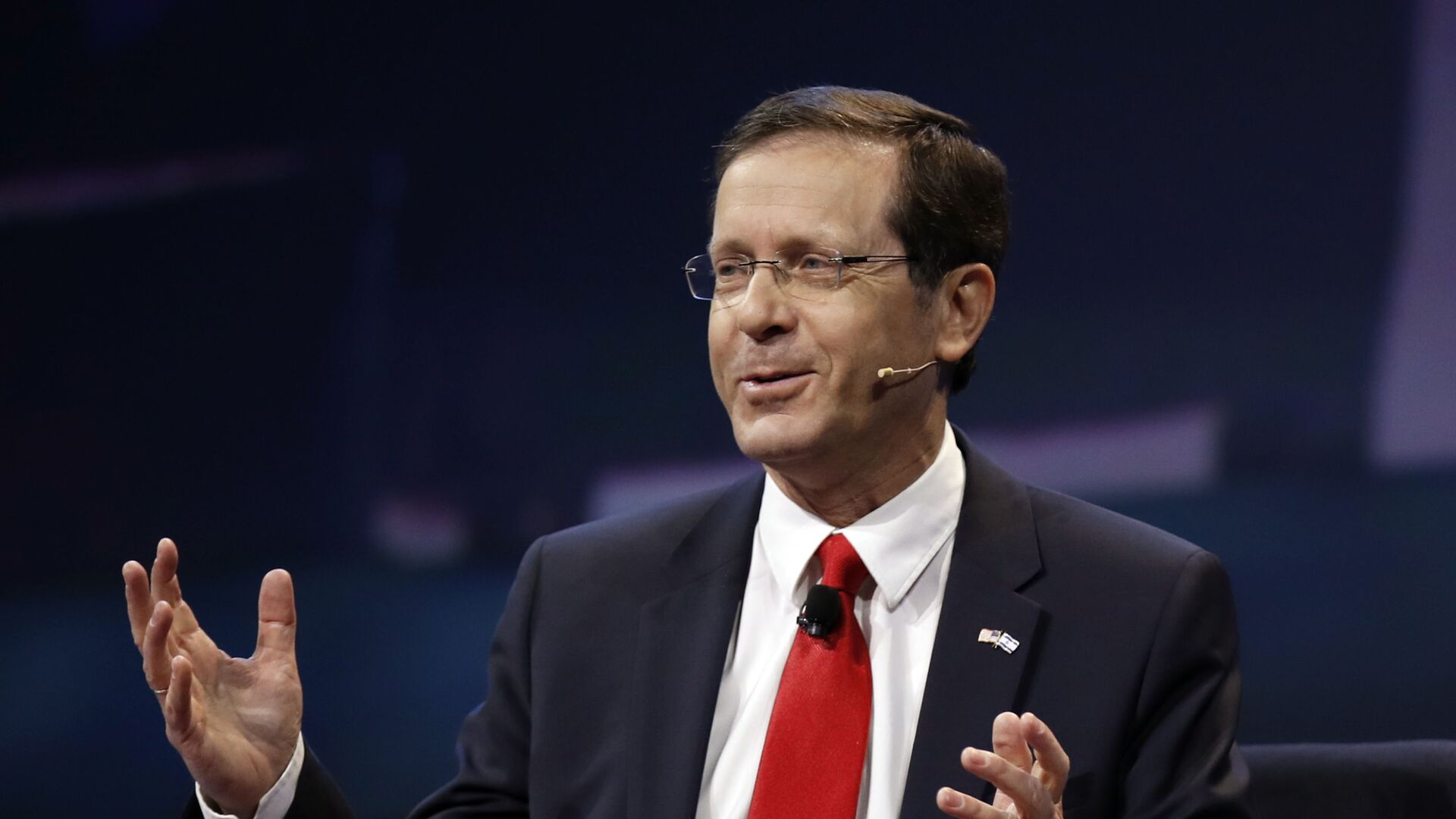https://sputnikglobe.com/20230213/israels-president-calls-for-postponement-of-planned-judicial-reform-1107361105.html
Israel’s President Calls for Postponement of Planned Judicial Reform
Israel’s President Calls for Postponement of Planned Judicial Reform
Sputnik International
President Isaac Herzog has delivered a national address calling on the government to delay consideration of a controversial judicial reform that has brought the country to "to the brink of a constitutional and societal collapse."
2023-02-13T03:03+0000
2023-02-13T03:03+0000
2023-02-13T03:03+0000
world
israel
isaac herzog
knesset
israeli knesset
knesset
reform
https://cdn1.img.sputnikglobe.com/img/07e5/06/02/1083056933_0:0:2783:1566_1920x0_80_0_0_4f1b47751af4017e54a2d2eebd803620.jpg
The Israeli Parliament, the Knesset, is set to start voting on the proposed reform package on Monday. Herzog set out five proposals for a consensual judicial reform on Sunday, addressing such issues as the inadequate number of judges, the high number of cases and the burden on the courts, as well as public loss of faith in Israel’s judicial system. The president called for talks between the Israeli government and the opposition, saying that the country was on "the brink of a constitutional and societal collapse." He urged the ruling coalition not to bring the bill to the first reading and to consider the five principles he proposed as a basis for further discussions. On January 4, Israeli Justice Minister Yariv Levin rolled out a legal reform package that would limit the authority of the Supreme Court by giving the cabinet control over the selection of new judges, as well as allowing the the Knesset to override the court's rulings with an absolute majority, among other points. The planned overhaul sparked public criticism and prompted a wave of mass protests. Under the Israeli judicial system, the Supreme Court plays the role of a constitutional supervisory body, since there is no constitution and constitutional court in the country. Government decisions are largely controlled by the court, which can overturn them if necessary.
israel
Sputnik International
feedback@sputniknews.com
+74956456601
MIA „Rossiya Segodnya“
2023
Sputnik International
feedback@sputniknews.com
+74956456601
MIA „Rossiya Segodnya“
News
en_EN
Sputnik International
feedback@sputniknews.com
+74956456601
MIA „Rossiya Segodnya“
Sputnik International
feedback@sputniknews.com
+74956456601
MIA „Rossiya Segodnya“
israel, israeli president isaac herzog, judicial reform, israeli justice minister yariv levin
israel, israeli president isaac herzog, judicial reform, israeli justice minister yariv levin
Israel’s President Calls for Postponement of Planned Judicial Reform
MOSCOW (Sputnik) - Israeli President Isaac Herzog has delivered a national address calling on the Israeli government to delay consideration of a controversial judicial reform that has brought the country to "to the brink of a constitutional and societal collapse."
The Israeli Parliament, the Knesset, is set to start voting on the proposed reform package on Monday.
Herzog set out five proposals for a consensual judicial reform on Sunday, addressing such issues as the inadequate number of judges, the high number of cases and the burden on the courts, as well as public loss of faith in Israel’s judicial system.
The president called for talks between the Israeli government and the opposition, saying that the country was on "the brink of a constitutional and societal collapse." He urged the ruling coalition not to bring the bill to the first reading and to consider the five principles he proposed as a basis for further discussions.
On January 4, Israeli Justice Minister Yariv Levin rolled out a legal reform package that would limit the authority of the Supreme Court by giving the cabinet control over the selection of new judges, as well as allowing the the Knesset to override the court's rulings with an absolute majority, among other points. The planned overhaul sparked public criticism and prompted a wave of mass protests.
Under the Israeli judicial system, the Supreme Court plays the role of a constitutional supervisory body, since there is no constitution and constitutional court in the country. Government decisions are largely controlled by the court, which can overturn them if necessary.


